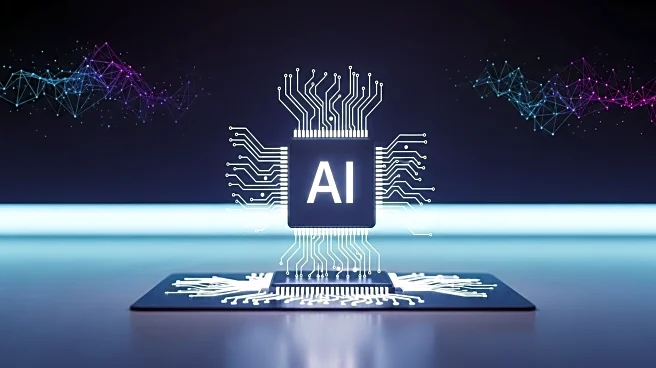What is the story about?
What's Happening?
Dr. Regina Barzilay, a professor at the Massachusetts Institute of Technology (MIT), has been recognized by TIME Magazine for her contributions to artificial intelligence in healthcare. Barzilay developed AI tools aimed at early detection of breast and lung cancer, which have been included in TIME's 2025 list of AI leaders. Her work includes the creation of Mirai, an AI tool that analyzes mammograms to predict the likelihood of developing breast cancer within five years. This tool could have identified her own breast cancer risk earlier than traditional methods. Additionally, Barzilay developed Sybil, an AI model that predicts lung cancer risk from low-dose CT scans. These tools are designed to improve early diagnosis and treatment outcomes, potentially increasing survival rates and reducing treatment side effects.
Why It's Important?
The development of AI tools like Mirai and Sybil represents a significant advancement in medical diagnostics, particularly for cancers that are often detected too late. Early detection is crucial for effective treatment and can significantly improve survival rates. Barzilay's work addresses a critical gap in healthcare by providing more accurate risk assessments, which can lead to earlier interventions. This innovation could transform how medical professionals approach cancer screening, potentially reducing the number of late-stage cancer diagnoses. The recognition by TIME underscores the importance of integrating AI into healthcare to enhance diagnostic accuracy and patient outcomes.
What's Next?
Barzilay aims to integrate these AI tools into clinical settings in the U.S., although challenges remain, such as obtaining FDA approval and developing clinical protocols for high-risk patients. The tools have already been validated in multiple countries and hospitals, indicating their potential for widespread adoption. As AI continues to evolve, its role in healthcare is expected to expand, with ongoing efforts to build trust in AI technologies among medical professionals and patients. The successful implementation of these tools could pave the way for further AI innovations in medical diagnostics.
Beyond the Headlines
The use of AI in healthcare raises important ethical and trust issues. While AI can enhance diagnostic accuracy, it also requires rigorous validation and integration into existing medical practices. Barzilay emphasizes the need for transparency and proper validation to build trust in AI tools. The broader adoption of AI in healthcare could lead to a paradigm shift in how diseases are diagnosed and treated, potentially reducing human error and improving patient care. However, it also necessitates careful consideration of data privacy and the ethical implications of AI decision-making in medical contexts.
















